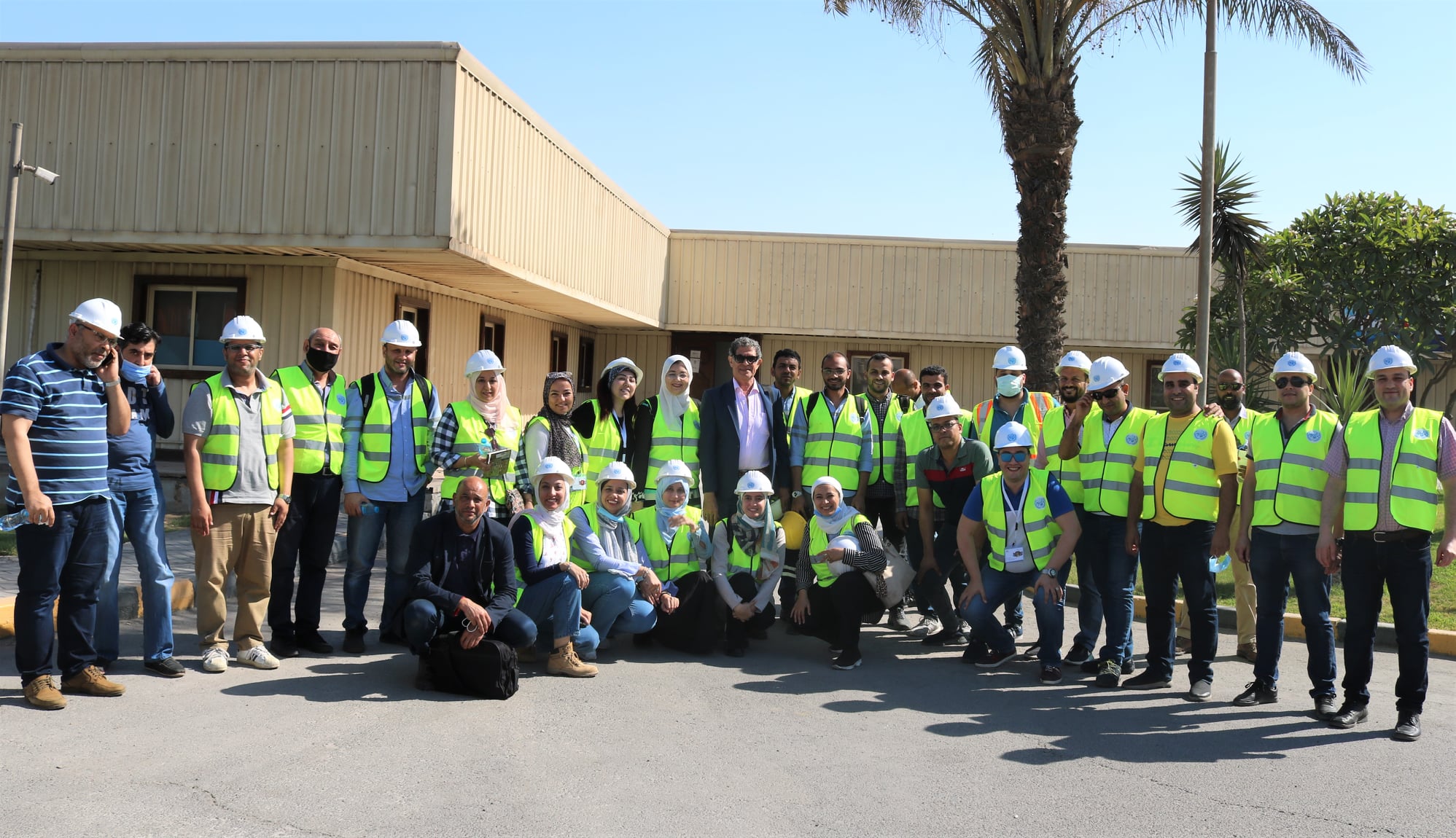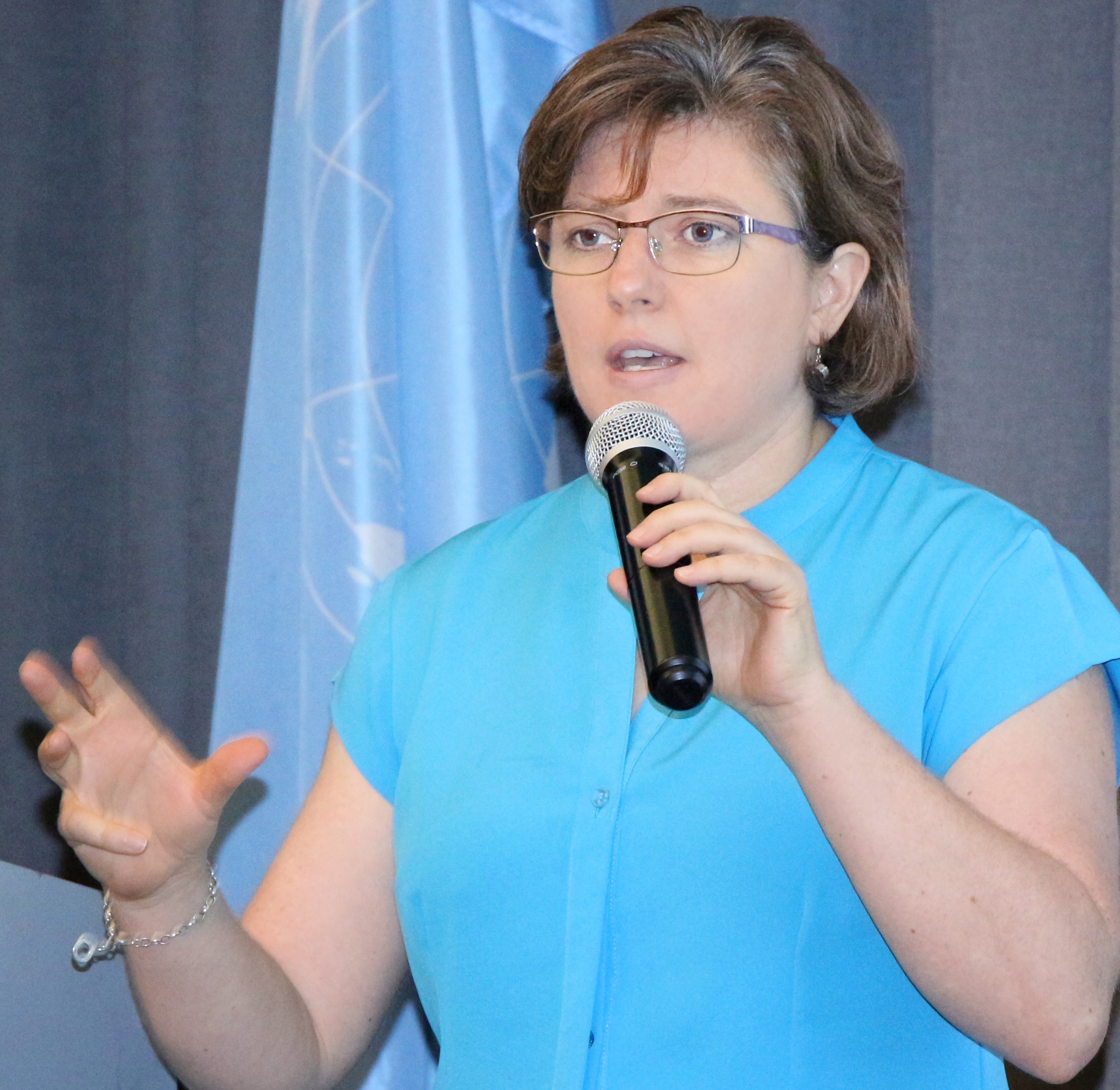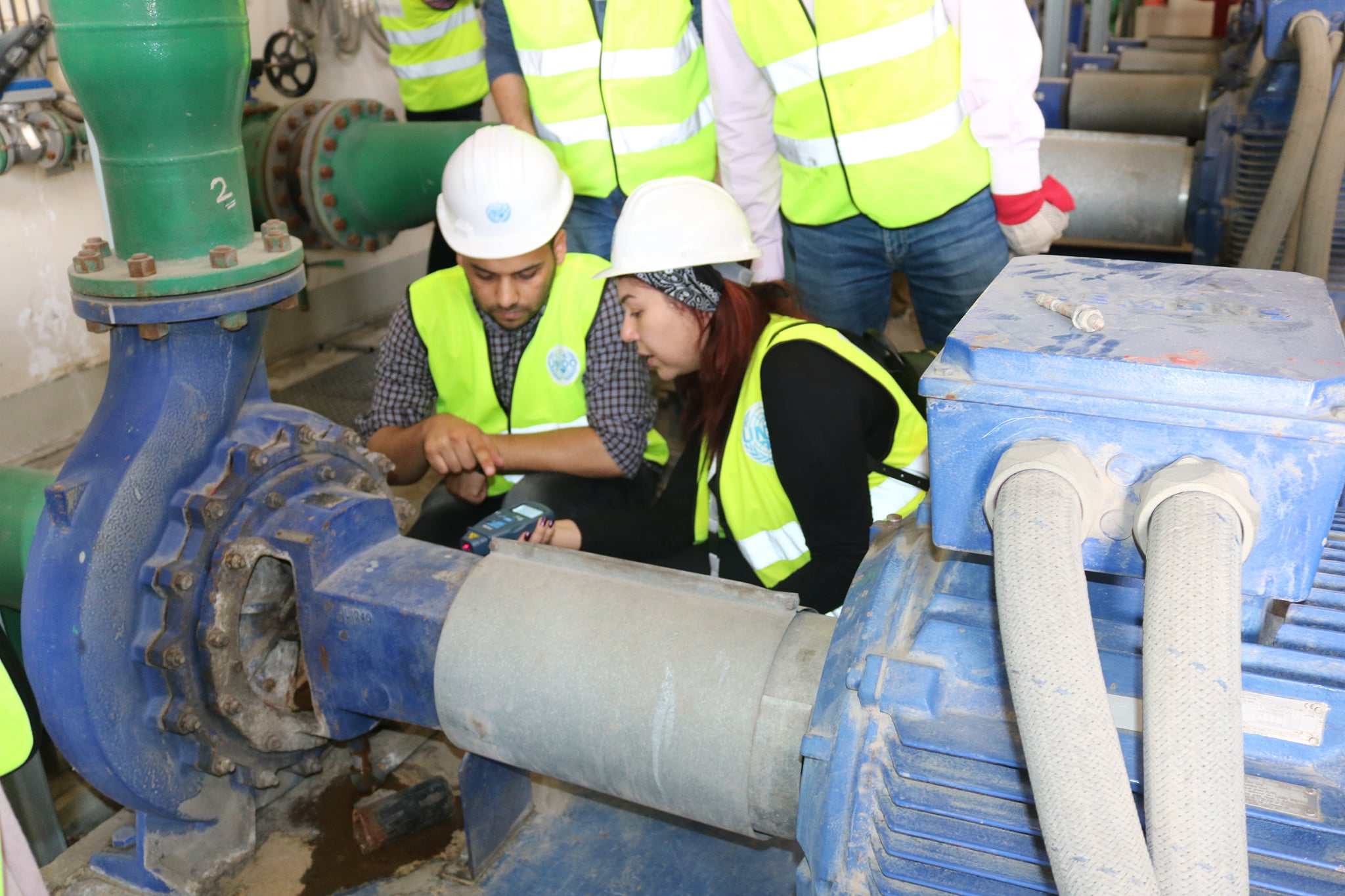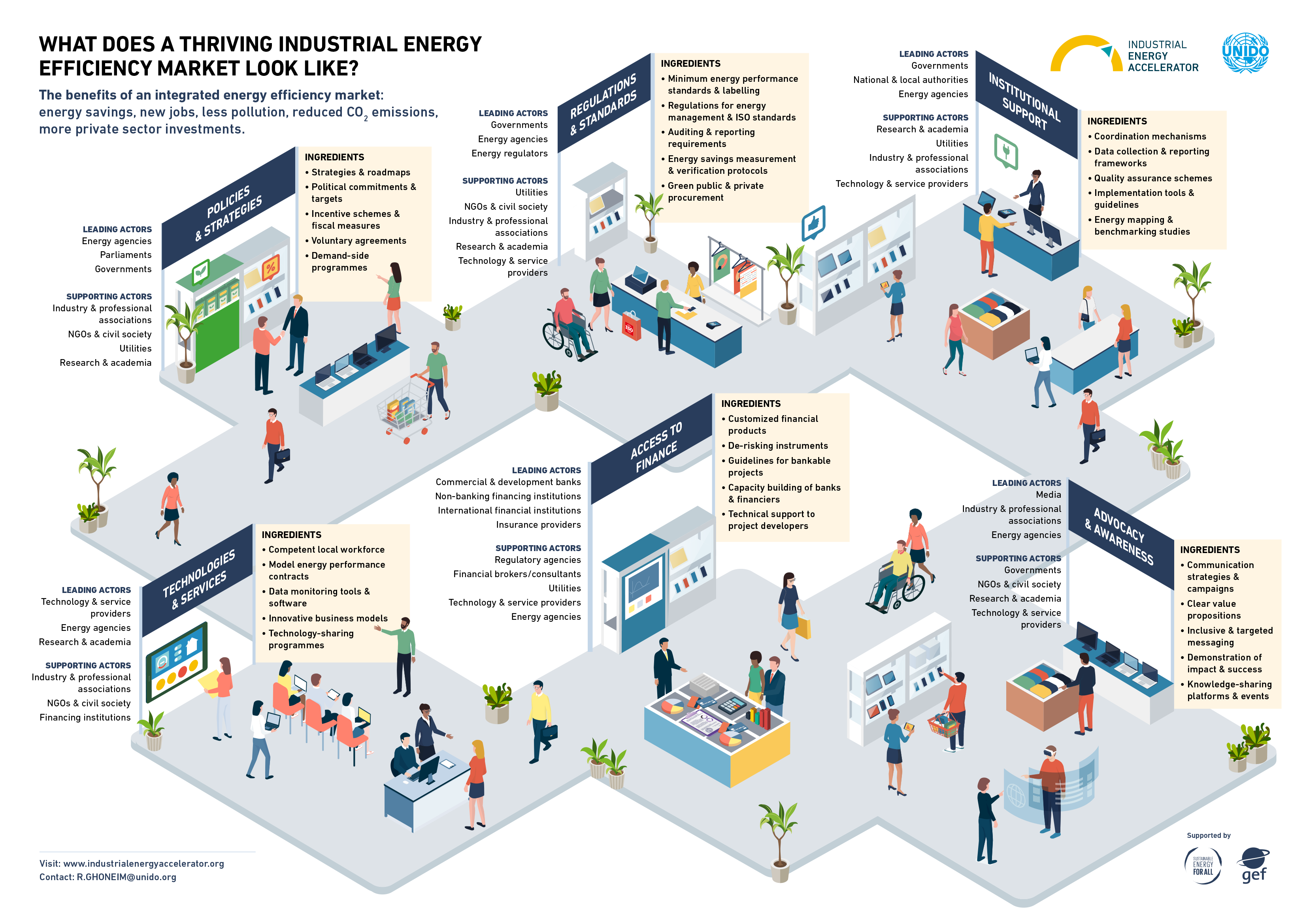Establishing a thriving market for industrial energy efficiency
| Over the past decade UNIDO has perfected an integrated strategy designed to accelerate national market demand for industrial energy efficiency. The benefits of an integrated energy efficiency market include energy savings, new jobs, less pollution, reduced CO2 emissions and more private sector investments. |
Eight years ago when UNIDO-Egypt embarked on a mission to accelerate the uptake of industrial energy efficiency there were barely any local service providers, and even fewer local success stories. Fast forward to today and hundreds of Egyptian industrial organizations and technical consultants have been trained by UNIDO; new energy services companies have emerged; key government ministries have introduced policy incentives; 1,220 GWh of energy has been saved and millions of tons of CO2 emissions have been avoided.
Despite its humble beginnings, the UNIDO-Egypt team helped to nurture a national market for energy efficiency services that has since taken on a life of its own. By 2030 UNIDO expects Egypt’s industrial energy efficiency service (ESCO) market to be worth USD $10 billion, providing thousands of new jobs in the process.

In less than a decade Egypt’s national market for industrial energy efficiency services has taken on a life of its own. With the support of UNIDO’s Industrial Energy Efficiency project, more than 3.58 metric tons of CO2 have been avoided, more than 700 local expert consultants have been trained and companies like petrochemical manufacturer SIDPEC are enjoying annual energy cost savings of more than USD $500,000.
Business has never been better for Dr. Ahmed Huzayyin, manager of engineering and management consulting firm Chemonics Egypt. Ahmed’s company has been riding the wave of Egypt’s growing industrial energy efficiency market. In 2013 the electrical engineer would be lucky to win one in 20 proposals he submitted to private factories. Today Ahmed has a year-long wait list for his energy system consulting services.
“Just last month we hosted an information webinar about energy system optimization. We sent one email about it and had more than 70 factories tune in. It’s just one example of the shift we’ve seen in Egypt’s industrial energy efficiency market in just a few short years,” explains Dr. Ahmed.

Dr. Ahmed Huzayyin’s engineering and management consulting firm, Chemonics Egypt, has been riding the wave of the country’s growing industrial energy efficiency market.
UNIDO-Egypt’s energy programme manager, Gihan Bayoumi, credits UNIDO’s holistic market approach to accelerating demand for the industrial energy efficiency services in her country.
“We had to work at multiple fronts to generate an appreciation for the costs of energy and also the opportunities. Not just from a financial perspective, but also from a competitiveness perspective, a policy perspective and also with respect to the environment as well,” explains Gihan
From Africa to Asia, Latin America and Eastern Europe, UNIDO’s systemic approach to stimulating demand for industrial energy efficiency services and technology is starting to pay real dividends.

In South Africa alone, where UNIDO has been delivering energy efficiency training programmes since 2011, hundreds of industrial companies have saved 6.5 TWh of energy, translating to cumulative cost savings of R5.3 billion (USD $358 million) in these companies and avoiding 6.4 million tons of carbon dioxide.
While the country’s ESCO market is still relatively nascent, South Africa’s above-inflation electricity price rises, national energy insecurity, decreasing technology costs, and increasing interest from investors, have all played an important role in driving the growth of the energy services market. The country now boasts well over 50 ESCOs, the majority of which specialise in industrial organizations. Many of these ESCOs have been engaged, supported with access to finance and trained through the award-winning GEF-funded Industrial Energy Efficiency Programme, which is implemented in South Africa by UNIDO, the National Cleaner Production Centre of South Africa (NCPC-SA), and the Department of Mineral Resources and Energy.
Transcending sectors and tackling multiple barriers simultaneously
UNIDO recently gathered its leading global experts in the field to provide insights on what they have learned in more than a decade of igniting demand for industrial energy efficiency in emerging economies. Together they defined the key ‘ingredients’ that go into fostering a thriving industrial energy efficiency market. These insights have been captured in an infographic (see infographic below).
In the past, international development projects have been criticised for fragmented and uncoordinated initiatives. Learning from these experiences, UNIDO understood that stimulating market-wide demand for industrial energy efficiency would require a systemic effort across various sectors.
Starting with a diagnostic assessment, UNIDO then works with national stakeholders to form a systematic programme architecture dedicated to stimulating market demand for industrial energy efficiency services and technology. There are six solutions which are central to UNIDO’s thriving industrial energy efficiency market methodology: 1) Policies and Strategies, 2) Regulations and Standards, 3) Institutional Support, 4) Technologies and Services, 5) Access to Finance, 6) Advocacy and Awareness.
“There’s a very complex array of intertwined barriers and therefore a very complex set of potential solutions,” explained João Lampreia, whose team co-led the analysis and design of energy efficiency initiatives in Brazil.
“It’s important to keep in mind that for each barrier, there isn’t just one solution, but a set of solutions that need to be deployed simultaneously.”
DOWNLOAD THE IEE MARKET INFOGRAPHIC HERE |
While it might be tempting to cherry pick initiatives that appear to be low hanging fruit, UNIDO’s experts unanimously agreed that without a systemic approach to industrial energy efficiency market development — which incorporates all six interconnected solutions — it is very difficult to achieve mass market uptake.
“As the world looks likely to overshoot our pledge to keep global warming below 2 degrees Celsius, there is no more time for piecemeal approaches. Working together, across sectors, with various development banks and multilateral agencies, NGOs, local consultants and government stakeholders is the only way to systemically shift market demand for sustainable energy practices and technology,” explains UNIDO’s Project Coordinator, Nurzat Myrsalieva, who organized the workshop held earlier this year.
Generating mass market awareness is key

Julie Wells, Marketing and Communication Manager, at the National Cleaner Production Centre of South Africa (NCPC).
One of the most overlooked, but nonetheless critical pillars of UNIDO’s strategy is advocacy and awareness. Without clearly communicated value propositions, knowledge sharing and targeted messaging — both at a national and local industry level — it’s virtually impossible to convince market actors to take a chance on industrial energy efficiency.
For nearly a decade Julie Wells has overseen a long-term awareness raising strategy, which has contributed to rising demand for industrial energy efficiency services in South Africa. In her role as the Marketing and Communication Manager, at the National Cleaner Production Centre of South Africa (NCPC), Julie and her team have published a large number of local industry case studies, hundreds of media articles and hosted numerous industry events.
“All too often, engineers will complete a project and move on, they forget to tell the story. One of the success factors of the IEE Project [in South Africa] has been telling the story to demonstrate the impact – encouraging others by showing what works,” explains Julie.
Gihan Bayoumi, UNIDO-Egypt’s Industrial Energy Efficiency programme manager, shares a similar sentiment.
“My strategy was to always provide the spotlight to the companies or government departments we were working with and allow them to talk directly to their peers about their achievements. This is much more powerful than UNIDO trying to sell the benefits of energy efficiency. People from the same sector, talk the same language. They all know and trust each other,” explained Gihan.

In 2018 the Egyptian government finally began rolling back the country’s substantial energy and fuel subsidies. This contributed to an increase in fuel prices and, as a result, renewed demand for energy efficiency services in Egypt’s industrial sector.
According to Gihan, UNIDO’s integrated approach which involved coordinated efforts on the policy front, capacity building and peer-to-peer awareness raising, was critical to fostering the demand and subsequent national market for energy efficiency services and certification.
A billion dollar opportunity in the wake of Covid
As industrial companies grapple with the rising costs of energy and climate change, the value of ESCO markets worldwide continues to grow. This is a particularly pertinent opportunity for emerging industrial economies as they recover from the Covid-19 pandemic.
Analysts forecast the industrial ESCO market size to grow by USD 2.09 billion during the period 2020-2024. Some countries like the US and China are leading by example, applying successfully integrated approaches and stimulating demand for industrial energy efficiency. UNIDO’s perspective takes into account the diversity of various domestic markets and suggests tailored and comprehensive solutions that are applicable around the globe.
|
Learn more about UNIDO’s Industrial Energy Efficiency Solutions Throughout 2020 UNIDO’s Industrial Energy Accelerator drew on its wealth of experience to produce a series of energy efficiency knowledge kits. These starter kits cover five key energy efficiency solutions which are designed to stimulate market demand for industrial energy efficiency. Through this series, the Accelerator hopes to inspire and equip industrial practitioners to take the first step towards enhancing their energy systems, and to promote these solutions amongst peers and decision-makers. |
